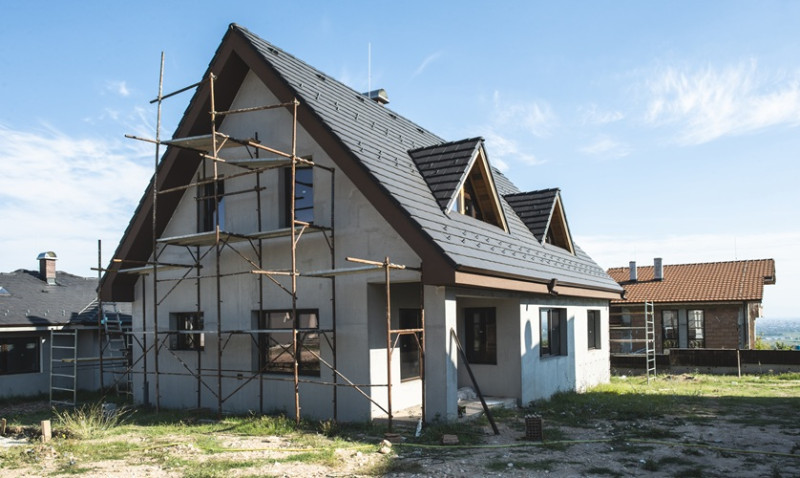
Embarking on a career or side hustle in construction without experience might feel like stepping into a world filled with tools, technical jargon, and skilled tradespeople—but don't be discouraged. With the right approach, even total beginners can break into the construction industry and build a successful path. Whether you're a DIY enthusiast, a young professional considering a career switch, or someone wanting to enhance your knowledge to make better decisions on your home renovation, this guide will help you get started in construction confidently—even without prior experience.
1. Understand the Types of Roles Available in Construction
One of the biggest misconceptions about the construction industry is that you need to swing a hammer or lay bricks to be part of it. In fact, there's a massive variety of roles, many of which don't require heavy manual labour or years of training. These roles include site labourers, project coordinators, material estimators, procurement officers, and site administrators.
Beyond those roles, there’s also growing demand for green construction experts, digital design technicians (BIM specialists), and customer service reps for building merchants. Understanding the broad landscape of the sector will help you find a role suited to your interests and physical capabilities.
A good starting point is to explore the pathways that align with your goals. Are you looking to eventually run a home renovation business? Start as a general labourer. Interested in property development? Learn the basics of project management and estimation. Want to become a skilled tradesperson? Start learning a trade like carpentry, tiling, or plastering in your spare time.
2. Learn Basic Tools and Skills Through Free and Low-Cost Resources
The beauty of getting into construction today is the sheer amount of free or affordable resources available at your fingertips. From YouTube to open course platforms like FutureLearn or Coursera, you can learn basic skills like measuring, cutting, painting, tiling, and understanding building materials—all from home.
Local colleges and adult learning centres throughout the UK often provide inexpensive short courses tailored toward beginners. Many of these courses are practical and hands-on, allowing you to gain experience in a safe, controlled setting. Look for weekend or evening sessions in subjects like plastering, bricklaying, or kitchen fitting.
Start small—learn how to use a saw, drill, spirit level, or understand what building materials are most commonly used in UK homes. This sort of foundational knowledge not only boosts confidence but is also essential when you eventually step foot on-site or take on DIY renovation work.
3. Volunteer or Take on Small Projects to Build Confidence
One of the best ways to break into construction without a formal background is by volunteering your time. Local community centres, charities like Habitat for Humanity, or even friends or family doing home renovations are perfect opportunities to get hands-on experience.
If volunteering isn’t an option, start with small personal projects—paint a bedroom, install shelves, assemble flat-pack furniture with precision, or fix a squeaky door. These projects build confidence and help you understand how buildings come together, even if they seem simple at first.
Each task teaches you planning, tool handling, and materials management—which are all vital parts of any construction role. Document your progress with photos and videos. This becomes a great personal portfolio and might help you land your first paid opportunity.
4. Get CSCS-Certified to Work On-Site in the UK
If your goal is to work on construction sites in the UK, one of the first formal steps is obtaining a CSCS (Construction Skills Certification Scheme) card. While not legally required for every site, most employers will insist on a card to prove your understanding of health and safety.
To obtain a CSCS Labourer Card (also known as the Green Card), you’ll need to complete a Health, Safety, and Environment Test—available at hundreds of testing centres across the UK – and take a Level 1 Award in Health and Safety in a Construction Environment. Both of these qualifications are beginner-friendly and relatively inexpensive.
Having a CSCS card puts you ahead of the pack and increases your chances of landing entry-level work, even if you don’t have other qualifications or experience.
5. Get Entry-Level Work or Apprenticeships
Many construction firms offer entry-level or trainee roles that don’t require any certifications beyond a CSCS card. Apply to positions like General Labourer, Assistant Site Operative, or Materials Handler to get your foot in the door. Sites like Indeed, Reed, and Construction Job Board often list roles requiring minimal experience.
Apprenticeships are also an ideal route for those willing to commit long term. In the UK, apprenticeships are available in a variety of construction-related fields, from electrical and plumbing to site management. They combine paid on-the-job experience with structured learning as part of your working week.
Here's an example of a few common entry points:
| Role Title | Typical Requirements | Average Starting Salary (UK) |
|---|---|---|
| General Labourer | CSCS Card, Physically Fit | £21,000 - £25,000 |
| Trainee Handyman | Basic DIY Skills, Driving Licence | £20,000 - £24,000 |
| Site Maintenance Assistant | Health & Safety Awareness | £22,000 - £26,000 |
| Construction Apprentice | 16+, British Citizen or leave to remain | £4.81/hour (minimum - increases annually) |
6. Get Comfortable with Building Terminology and Regulations
Clients, tradespeople, and project managers all use specific language on-site. That means getting familiar with construction lingo will save you from confusion and help you get ahead faster.
Terms like “first-fix,” “SNAG list,” “U-value,” or “stud wall” are part of the daily vocabulary on UK construction sites. Take the time to read glossaries or watch explainer videos related to construction terminology. This small effort will make you more confident and allow you to fully understand what’s happening around you.
Additionally, become aware of UK building regulations. Don’t worry—you’re not expected to memorise the technical details. However, understanding areas like fire safety, insulation requirements, or structural limitations in home renovations can make you a smarter and more capable operator, especially if your ambitions include running your own projects in the future.
7. Network with Other Tradespeople and Industry Professionals
Construction is a relationship-driven industry. Building strong connections with local tradespeople, materials suppliers, architects, and experienced contractors can open doors to mentorship, job referrals, and valuable industry insights.
Attend construction trade shows, property expos, or local networking meet-ups like those hosted by the Federation of Master Builders or local councils. LinkedIn and Facebook groups tailored to UK trades are also great online communities where experience is regularly shared and opportunities advertised.
If you've already done a small project or volunteered, ask for testimonials or references to help build your reputation. When you're just starting out, credibility and reliability will go a long way in landing more work or clients.
8. Consider Specialising in a Niche Area
Once you've explored multiple elements of construction and found something that you enjoy and excel at—such as tiling, plastering, fencing, or dry-lining—consider narrowing your focus. Becoming a specialist in a niche area can help you stand out in a competitive market and command better rates.
In the UK trades industry, skilled specialists are always in demand—and clients are often willing to pay more for someone who’s a master in a specific area. You can also achieve higher customer satisfaction and build a stronger reputation when your offering is more refined.
Specialisation also positions you better over time if you want to go into freelancing or business ownership. Think long-term: those tiling jobs you begin as a side hustle could one day turn into running a small team handling premium bathroom installations across your local county.
9. Always Prioritise Health and Safety
Construction is one of the most hazardous industries, and no matter your role, taking safety seriously is not optional. Learn proper handling of tools, understand PPE requirements, and follow site rules and regulations rigorously.
In the UK, the Health and Safety Executive (HSE) is the go-to source for legal guidance and free resources on construction safety. If you're managing projects (even as a keen DIYer), it's worth reviewing their site regularly to stay current on requirements.
Many employers—and even clients—will judge your professionalism by how well you follow safety protocols. Make it a habit from day one and it will reinforce your reputation for being reliable and professional.
Final Thoughts
You don’t need years of experience or fancy qualifications to begin a rewarding, successful career in construction. What you do need is curiosity, resilience, and the willingness to take practical steps—like learning the basics, getting on-site access, and networking with the right people.
Start where you are. Begin small. Whether it's painting your own hallway, attending a weekend bricklaying course, or applying for an entry-level job as a helper, take continuous steps. With each experience, you'll get sharper, stronger, and closer to your goals.
Remember: In construction, foundations are everything—including your own. Build yours now, and your success will follow.






